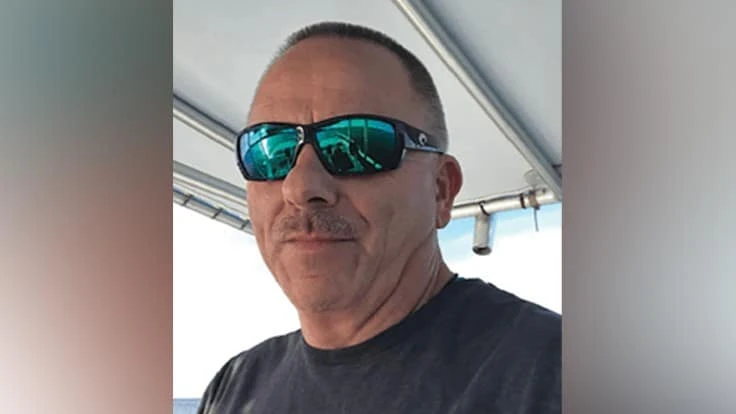

When Bill Turner started working in the greenhouse industry more than 40 years ago, there were no computers, no internet resources and very few growers willing to share their expertise.
“You either learned by reading or you learned from hands-on experience, so you were really dependent on the knowledge of those above you,” says Turner, head grower at Van de Wetering Greenhouses. “When I was younger, most growers were not forthcoming with knowledge. Everybody liked to hold on to what they’d learned, and they were resistant to pass down what they knew.”
When Turner was in high school, he got a job working at the greenhouse that his father managed in New Jersey. He was growing potted mums when suddenly, one day, the holiday department manager quit — taking all his notes, records and career knowledge with him.
“It was an eye-opening experience,” Turner says. Although he paid enough attention to keep the holiday department running without any major hiccups, that situation taught him how important it was to foster a smooth knowledge transfer between generations of growers.
Ever since then, Turner has been thoroughly committed to sharing his expertise.
Learning from mistakes
Turner went to college to be an accountant like his mother but followed his father into horticulture instead. “I fell in love with the job because I loved growing plants,” he says.
In 1985, Turner started working at Ivy Acres, which was founded by brothers Jack and Peter Van de Wetering. After Peter started Van de Wetering Greenhouses to produce plugs and other plant material, Turner started there as head grower in 1992.
When Turner first joined the company, Van de Wetering Greenhouses produced about 50 million plugs a year. As head grower, he did everything from seeding to growing to shipping — with plenty of experimentation along the way.
As the company grew, Turner’s role gradually evolved from grower to mentor. Today, he manages one assistant head grower and three section growers, along with a cross-trained team that helps care for plants in Van de Wetering’s 20-acre facility on Long Island.

“I learned that you can’t do it all yourself,” says Turner, who oversees production of about 250 million seedlings and 30 million cuttings a year. “Now, I do a lot more mentoring than I did early on, because you have to prepare the next group of growers to be able to do what you do. The benefit they have is I’ve made a ton of mistakes and I’m able to pass those on.”
For example, Turner admits he was heavy-handed with trial applications of new plant growth regulators early on, which stunted entire crops of poinsettias and New Guinea impatiens cuttings. From those mistakes, he learned to do multiple applications at lower rates.
Passing down knowledge
Many years ago, Turner started documenting his mistakes and lessons into a growing guide for his team. By developing and continually updating this manual of plant knowledge, Turner hopes to equip his growers with everything they need.
“We started with the crops we struggled with, like getting bacterial leaf spot on verbena because we weren’t feeding them enough under the high-pressure lights. So, if you’re taking care of the verbena seedlings, you know exactly what to do fertility-wise, how to weigh the trays to determine if they need water and what chemical applications to do,” he says. “You have the knowledge right in front of you, so you don’t have to keep asking the same questions. There’s no secrets, no hidden knowledge here.”
The guide is available in English and Spanish to accommodate Van de Wetering’s bilingual workforce. Turner updates the information almost daily as he continues to troubleshoot issues and grow more efficiently.
For example, he’s started using biological pest controls to cut down on chemical applications.
“The only way you can get better is to look at what you’re struggling with and work on your weaknesses,” he says. “You can never be complacent in this business.”
Turner says growers today have the advantage of the internet, enabling them to connect with other growers on social media and Googling issues to find solutions.
But he still says that social media doesn’t replace hands-on learning. “It still comes down to walking through the crop and being able to handle problems before they happen,” he says.
As satisfying as it feels to master a crop, Turner says it’s even more gratifying to teach young growers how to do it themselves.
“That’s what gives me the most passion now is teaching and mentoring the younger guys, because when I was young, not everybody wanted to help,” he says. “Growing is hard, so it’s nice to be able to help people out and save them from the pain you’ve had in your life.”

Explore the February 2020 Issue
Check out more from this issue and find your next story to read.
Latest from Greenhouse Management
- Anthura acquires Bromelia assets from Corn. Bak in Netherlands
- Top 10 stories for National Poinsettia Day
- Langendoen Mechanical hosts open house to showcase new greenhouse build
- Conor Foy joins EHR's national sales team
- Pantone announces its 2026 Color of the Year
- Syngenta granted federal registration for Trefinti nematicide/fungicide in ornamental market
- A legacy of influence
- HILA 2025 video highlights: John Gaydos of Proven Winners





